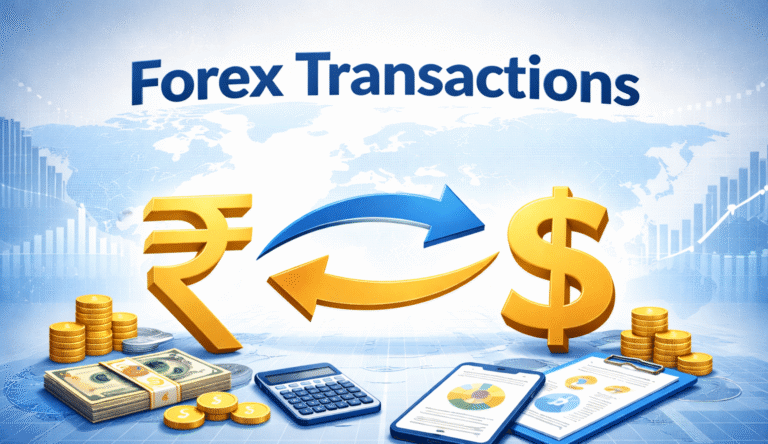Forex Card vs Cash: What’s the Best Choice for International Travelers?
Planning your international journey involves more than just booking flights and packing bags. One critical decision is how to carry your money abroad. Among the most popular choices are a forex card vs cash. But when it comes to convenience, cost-efficiency, and safety, who wins this financial face-off?
Let’s break it down to help you make a smart and secure financial decision for your trip.
Understanding the Basics of Travel Currency Options
An overview of how forex cards and cash work when traveling internationally.
A forex card, also known as a prepaid travel card, is a reloadable card loaded with foreign currency before you begin your journey. You can swipe it at stores, withdraw money from ATMs, or shop online while traveling abroad.
On the other hand, currency notes refer to actual foreign cash. You exchange Indian Rupees before departure and carry the money physically.
In comparing a forex card vs cash, both options serve the same purpose but come with distinct pros and cons. It’s essential to understand these tools to use them effectively during your trip.
Key Advantages of Forex Cards Over Cash
Why do many travelers prefer forex cards over carrying cash?
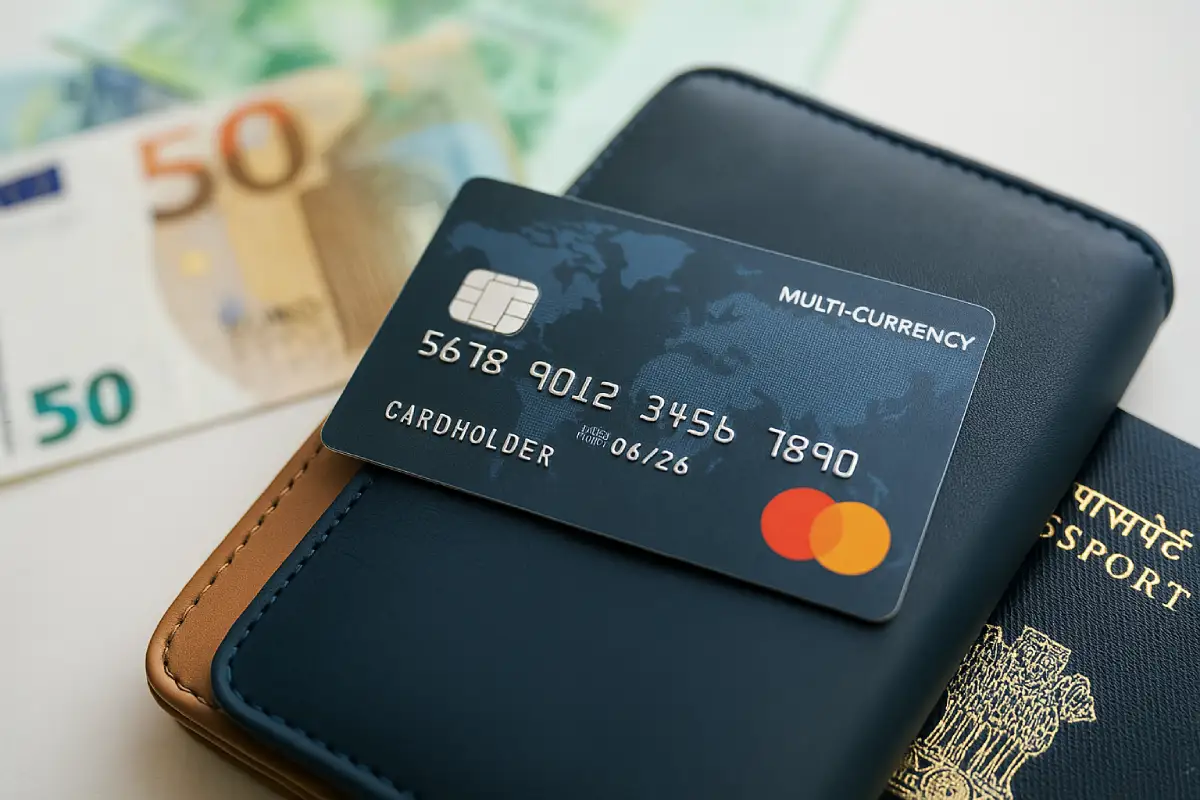
Forex cards are gaining popularity for international travel due to their blend of convenience and security:
- Locked-in Exchange Rates: When you load a forex card, the rate is fixed, protecting you from currency fluctuations.
- Multi-Currency Support: One card can store multiple currencies like euros, dollars etc, great for multi-country trips.
- Secure Transactions: Cards are PIN-protected and can be blocked if lost.
- Trackable Spending: Easily monitor usage via mobile apps.
- Lighter to Carry: No need to carry large wads of currency notes.
- Reload Option: You can top up your forex card online, anytime, anywhere.
These benefits highlight why many travelers consider forex cards a smarter solution than carrying physical money.
Disadvantages of Forex Cards in the Forex Card vs Cash Debate
Forex cards have limitations every traveler should consider.
Despite their benefits, forex cards may not always be ideal:
- Fees: ATM withdrawals and cross-currency usage may incur additional charges.
- Limited Acceptance: Not all places, especially small vendors or rural areas, accept cards.
- Card Limits: Predefined withdrawal and spending limits can restrict usage.
- Country Restrictions: Not valid in some politically sanctioned countries.
- Requires Activation and Documentation: KYC norms must be followed, which can take time.
In comparing a forex card vs cash, these drawbacks emphasize the need for a well-balanced strategy.
Strengths of Using Cash Abroad
When cash makes more sense than digital alternatives.
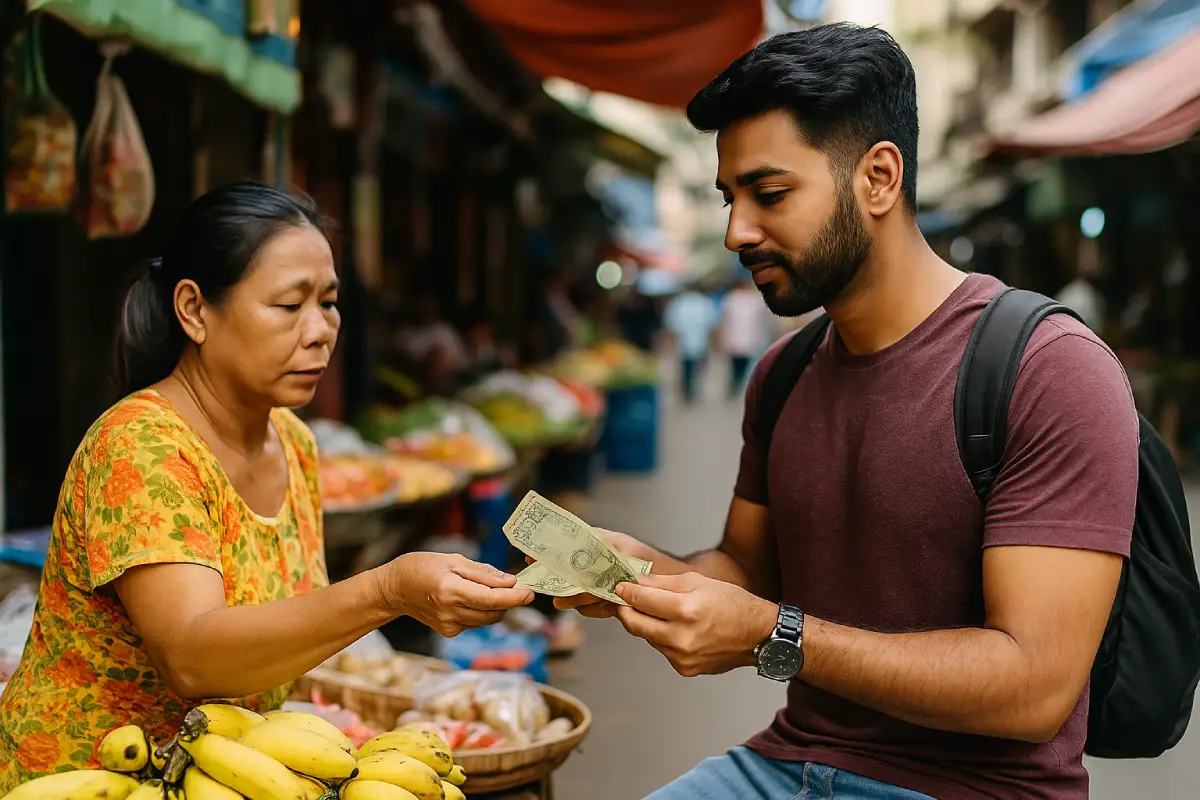
While cash might seem outdated, it still offers key benefits:
- Universal Acceptance: Works everywhere—from remote villages to local street vendors.
- No Tech Dependence: Doesn’t rely on the internet or banking networks.
- No Fees: No ATM or currency conversion charges post-exchange.
- Instant Accessibility: Great for tips, taxis, and quick purchases.
Cash provides a sense of security and reliability, especially in regions with limited card infrastructure.
Weaknesses of Carrying Cash While Traveling
The downside of using only physical currency abroad.
However, relying solely on cash presents some challenges:
- Risk of Theft: Harder to replace if lost or stolen.
- Poor Exchange Rates: Airports and hotels often charge inflated rates.
- Difficult to Carry Large Amounts: Handling cash safely can be stressful.
- Possibility of Counterfeit Notes: Especially when exchanging at unverified places.
- Harder to Track: No digital record of how much is spent and where.
When weighing cash vs forex card, these risks tip the scale slightly in favor of card-based solutions for many travelers.
Forex Card vs Cash: What Should You Choose?
A practical breakdown based on trip type and destination.
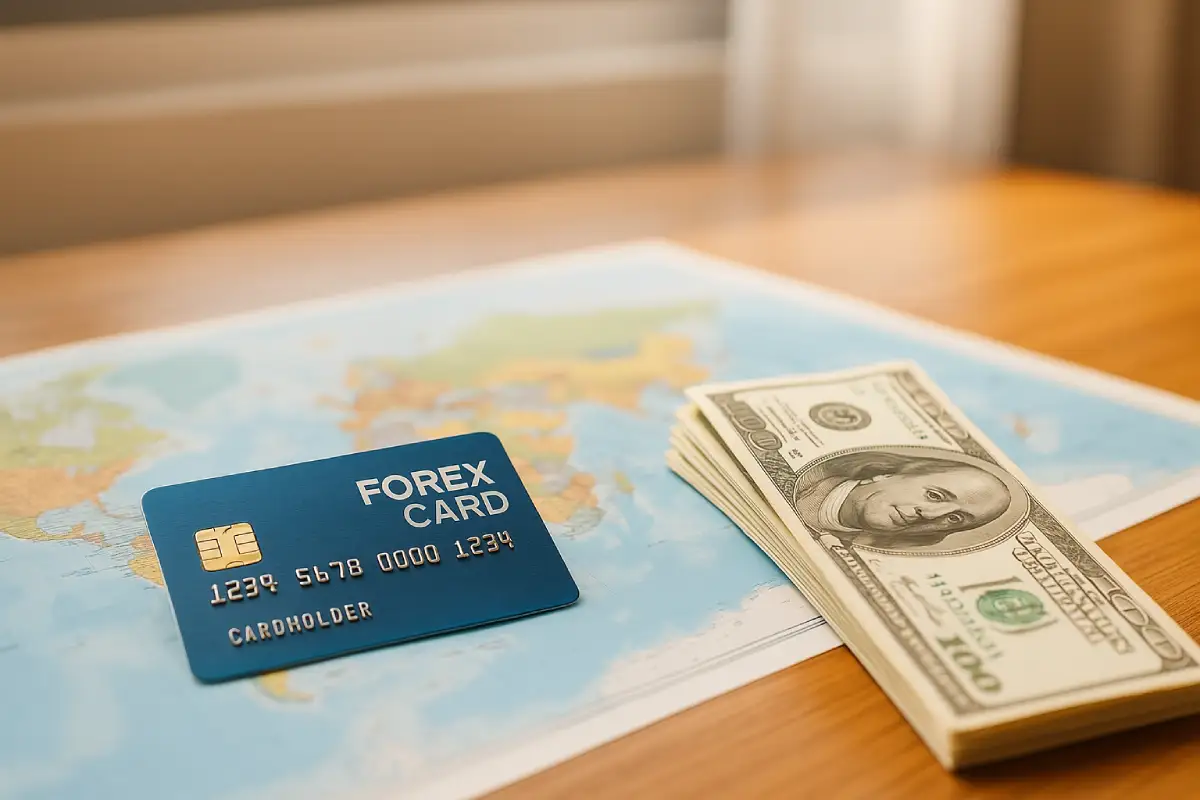
There’s no one-size-fits-all answer in the forex card vs cash debate. Instead, consider this smart approach:
- Short Trips to Developed Countries: Use a forex card for 70% of your budget. Carry 30% as cash for emergencies.
- Multi-Country or Long-Term Travel: A multi-currency forex card is essential. Keep limited cash in each destination’s currency.
- Trips to Rural or Developing Areas: Rely more on cash—up to 50%—as card acceptance may be low.
For instance, while traveling to countries like Japan, the US, or Germany, a forex card will likely cover most of your needs. But if you’re visiting smaller towns in Southeast Asia or parts of Africa, you may need to rely more on physical currency.
Expert Tips for Using Forex Cards and Cash Together
How to make the most of both forex cards and cash.
- Use your forex card for hotel stays, restaurant bills, and online purchases.
- Carry cash for tips, taxis, and purchases at local markets.
- Avoid exchanging currency at airports.
- Monitor your forex card via the provider’s app to stay on top of spending.
- Always get your forex needs sorted from an RBI-authorized provider.
- Keep a spare forex card in a different wallet or location as a backup.
- Split your cash into smaller portions and store them in multiple places to reduce risk.
This combination helps you avoid being stuck in a foreign land without money when one method fails.
Why Choosing the Right Forex Partner Matters
The provider you choose can make or break your travel budget.
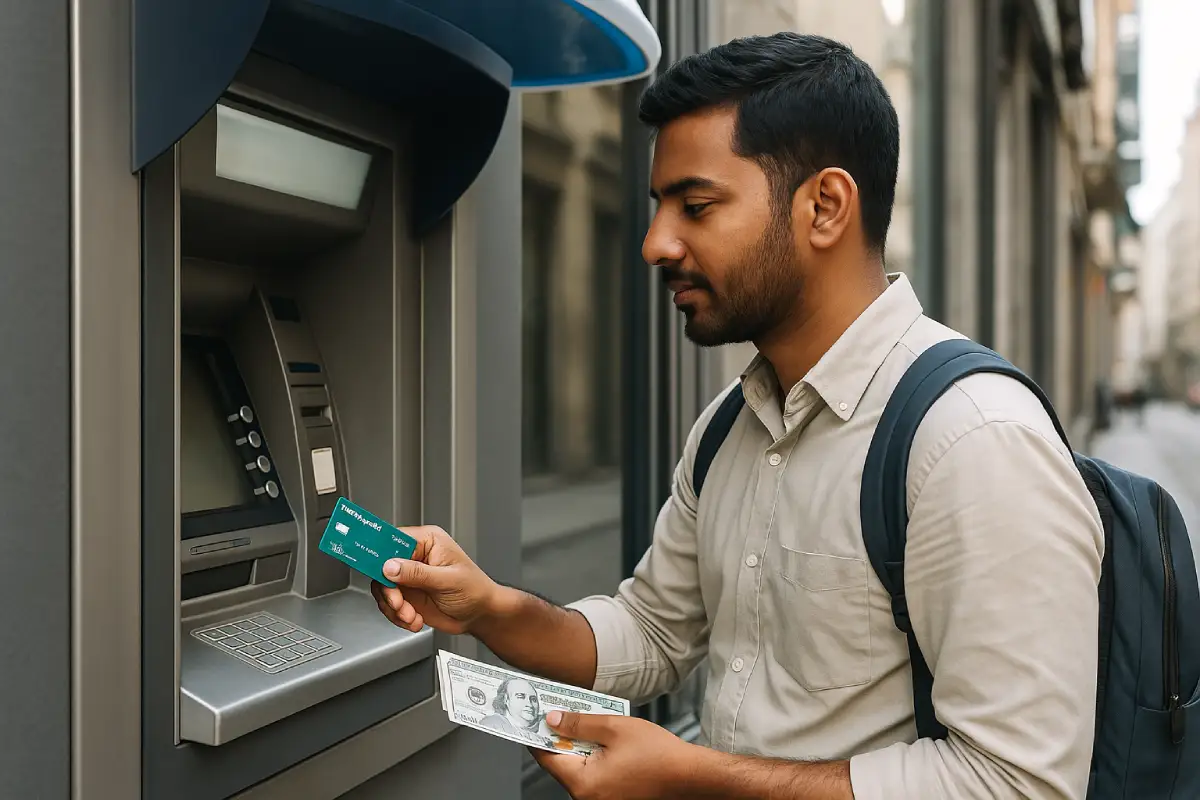
Even the smartest mix of card and cash won’t help if you get poor exchange rates or hidden fees. At Savi Forex, we offer:
- Competitive exchange rates on forex cards and currency notes
- Zero hidden fees for loading or reloading
- RBI-authorized services with expert guidance
- 100% secure and fast service across India
- Personalized assistance for choosing the right card or cash mix
- Doorstep delivery and online convenience
Whether you’re planning a quick getaway or a global adventure, we help you save more and travel smart.
Final Thoughts: Forex Card vs Cash—Choose Wisely, Travel Smarter
Combine both tools for the best experience abroad.
Still wondering, is forex card better than cash? The truth is: both serve essential roles. While forex cards provide security and efficiency, cash offers universal usability. A 70:30 or 50:50 mix can often strike the perfect balance.
Whether you’re traveling for business, leisure, or study abroad, understanding the forex card vs cash dynamic helps you budget better, stay safer, and avoid unnecessary expenses.
At Savi Forex, we guide you in choosing the right option, delivering cost-effective solutions for your foreign currency needs.



